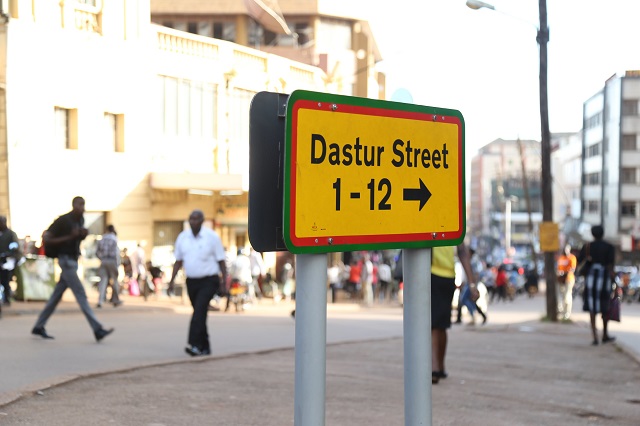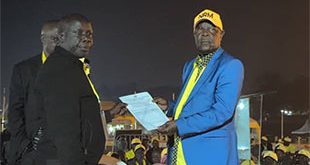
Kampala, Uganda | THE INDEPENDENT | In the heart of Kampala, lies a number of roads named after key figures in British history and those who contributed to the journey to Uganda’s independence. A few others are named after landmarks, topographic features, heroes and political leaders.
A navigation through the city will lead you to a number of English names holding the legacy of members of the Royal family in the United Kingdom of Great Britain, legends and colonial agents. These include Princess Anne Drive, Prince Charles Drive, MacKinnon Road, Victoria Avenue, Mackenzie Vale, Dewinton Road, Phillip Road, Windsor Crescent, Colville Street, Lugard Road, Windsor Loop, Portal Avenue, Baskerville Avenue, Tufnell Drive and Hesketh Bell Road among others.
But over the last three years, this has changed as Kampala Capital City Authority embarked on a new programme to name all the roads in the city. So far 7,015 roads in the five divisions of Kampala have been named and installed with signage in line with provisions of the KCCA Act. The initiative has now seen more roads named after local elders in the communities.
Flavia Zabali, the Geographical Information System analyst at Kampala Capital City Authority-KCCA says that the road naming process was informed by the need to improve navigation within the city and that it is being implemented under the City Address Model, a component of the Kampala Institutional and Infrastructure Development Project (KIIDP).
According to Zabali, the road naming process starts from communities guided by the KCCA road naming guidelines. The authority holds community meetings where area maps are displayed and the community members asked to identify their roads and suggest possible names.
The meeting minutes and map are then forwarded to the Local Council II for approval. In case of a disagreement on a name, Zabali says that the queried names are taken back to the Communities under the Local Council I for review.
It is after the approval by the Local Council II that the names proceed to the Physical Planning Committee which endorses and the final process goes to the Authority Council for approval.
The KCCA road naming guidelines also give powers to the President, Parliament, the Authority Council and Division Councils to make proposals by way of a resolution or Presidential directive to name an unnamed road or rename a road.
But Zabali observes that at the initiation point, many road names approved at the Division level only remained in minutes. However, these have since been forwarded to the authorities for approval and entered into an online system and thereafter uploaded on Google and Open Street maps.
The process can also be initiated online by downloading forms from the KCCA website. The forms are then filled by members of the public with suggestions on road name proposals which are then forwarded to the larger community for views and subsequent approvals.
KCCA spokesperson Peter Kaujju is optimistic that the signage’s will have a great impact on mobility in the city.
Early this month, a signpost bearing the name Singh Katongole was placed on Namirembe road much to the surprise of the public. Many questioned why the road was named after the former Member of Parliament and somewhat controversial businessman.
While Kampala Capital City Authority- KCCA said the sign had been put at the wrong place and was therefore removed, Katongole’s name might appear on one of the roads in Kampala.
******
URN
 The Independent Uganda: You get the Truth we Pay the Price
The Independent Uganda: You get the Truth we Pay the Price



